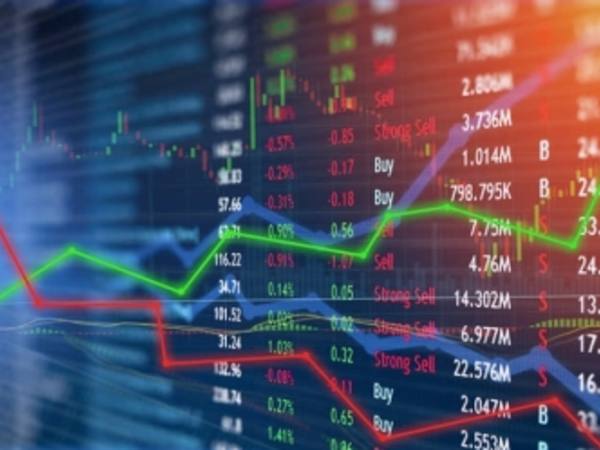Warren Buffett once proclaimed that “you don’t need to be a rocket scientist. Investing is not a game where the guy with the 160 IQ beats the guy with 130 IQ”. Reassuring words from the Sage of Omaha: the stock market is not a domain exclusively reserved for geniuses.
Even so, there is evidence to suggest that a person’s intelligence quotient (IQ) does directly influence their willingness to buy shares in companies – controlling for alternative influences such as employment status and income. A 2011 paper, written by academics Mark Grinblatt, Matti Keloharju and Juhani Linnainmaa, uses statistical analysis to show that those with higher IQs are more likely to jump into the market. Those with lower IQs are correspondingly less likely to do so.
And that’s little wonder, perhaps, when you consider the other key takeaway from Grinblatt and co.’s study. The data suggests that higher-IQ investors tend to benefit from greater diversification in their portfolios, lower volatility and a better risk/return trade-off.
Methodology: from start to Finnish
The report – titled ‘IQ and Stock Market Participation’ – considers the role played by cognitive ability in what they call the "participation puzzle". Ths refers to the fact that only 50 per cent of US households own stocks and participation across Europe is even lower.
Intelligence is difficult to quantify and it is also hard to isolate this measure from other information that might affect a person’s investment decisions. But, conveniently, one country makes such appraisal a little easier: Finland. All male Finnish citizens are required to undertake mandatory military service. And, around the time of induction – which is usually 19-20 years old – they sit various tests, including 120 questions determining mathematical, verbal and logical skill.
Those sub-scores are turned into a composite intelligence score by the Finnish Armed Forces (FAF), which Professor Grinblatt, etc. refer to as ‘IQ’. The scores are standardised to follow the “stanine distribution” scale of one to nine, where nine is the most intelligent.
The authors have IQ data on all inductees entering service between 1982-2001. They also have stock registry and mutual-fund ownership data that assesses inductees’ stock ownership later in life. And they have the year 2000 tax returns of roughly 160,000 of those inductees, which include details such as job, marital status and foreign-asset ownership. They claim that their work uses a larger sample, with more controls, than other studies on the same topic.
The findings: policy and problems
The research throws up some clear-cut findings. Controlling for other observable characteristics, the stock-market participation rate for people in the lowest-IQ stanine is 20.5 percentage points lower than for the highest-IQ individuals. People in the lowest-IQ stanine are less likely to own stock than people in the second-lowest IQ stanine, and so on.
Moreover, even after considering several other potential influences in investing – many of which are linked to IQ, such as occupation – the study still argues that “the most striking coefficients belong to IQ”. The data also indicates that the high correlation between IQ and market participation exists even among affluent people, who would presumably be less concerned about the fixed costs of investing. Indeed, the study concludes that the impact of IQ is “far larger than the effect of income on participation”.
The research moves on to suggest that high-IQ investors are more likely to earn higher Sharpe ratios – a measure of risk-adjusted return – because they typically hold mutual funds, a greater number of stocks, and have lower-beta (less volatile) portfolios than lower-IQ participants. If lower-IQ participants are more likely to endure volatility, the study notes that they may see the risk/return trade-off as less appealing.
The authors suggest that IQ’s correlation with participation could have implications for the distribution of wealth, and the policies that affect this. If lower-IQ investors engage less often in the stock market, their savings will typically earn lower returns. Over time, the paper says that this could widen the wealth gap between low- and high-IQ individuals more than wage differences.
Additionally, the report notes that governments often use privatisation offerings with incentives that spur retail investors to sign up. But while high-IQ investors “disproportionately reap the benefits of these incentives”, such offerings may transfer wealth to those with higher IQs.
Notwithstanding the unique approach taken by the authors to gathering and studying demographic data, some may question how much we can extrapolate its findings. For one thing, Finland had a population of just 5.5m people in 2019, when the UK’s was 66.7m. And different stock markets have different compositions. What’s more, female IQ is not included in the Finnish military service data – albeit the authors do substitute for that missing data, extending their analysis to 4,358 sisters of their subjects. Critics might also contend that there are multiple and varied ways of identifying and defining intelligence.
Changing world
That’s before mentioning the fact that the years since the report's publication have seen the rapid rise of financial technology or ‘fintech’ platforms – providing more avenues for private investors to take stock-market positions.
Just this month, news emerged that Robinhood, a trading app that aims to “democratise finance for all” – and which recently postponed its UK launch – had achieved an $11.2bn (£8.5bn) valuation. This and other tech-enabled trading platforms could bolster participation levels. But there’s an argument that making it easier to invest can lead people with limited experience to make very risky and loss-making bets.
The evolution of investment platforms and fintech needs to go hand-in-hand with an increased awareness and education of markets to ensure everyone can benefit from the progress.











